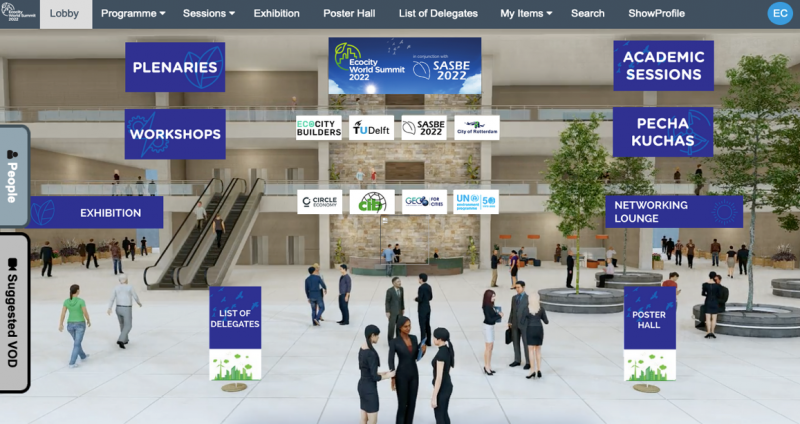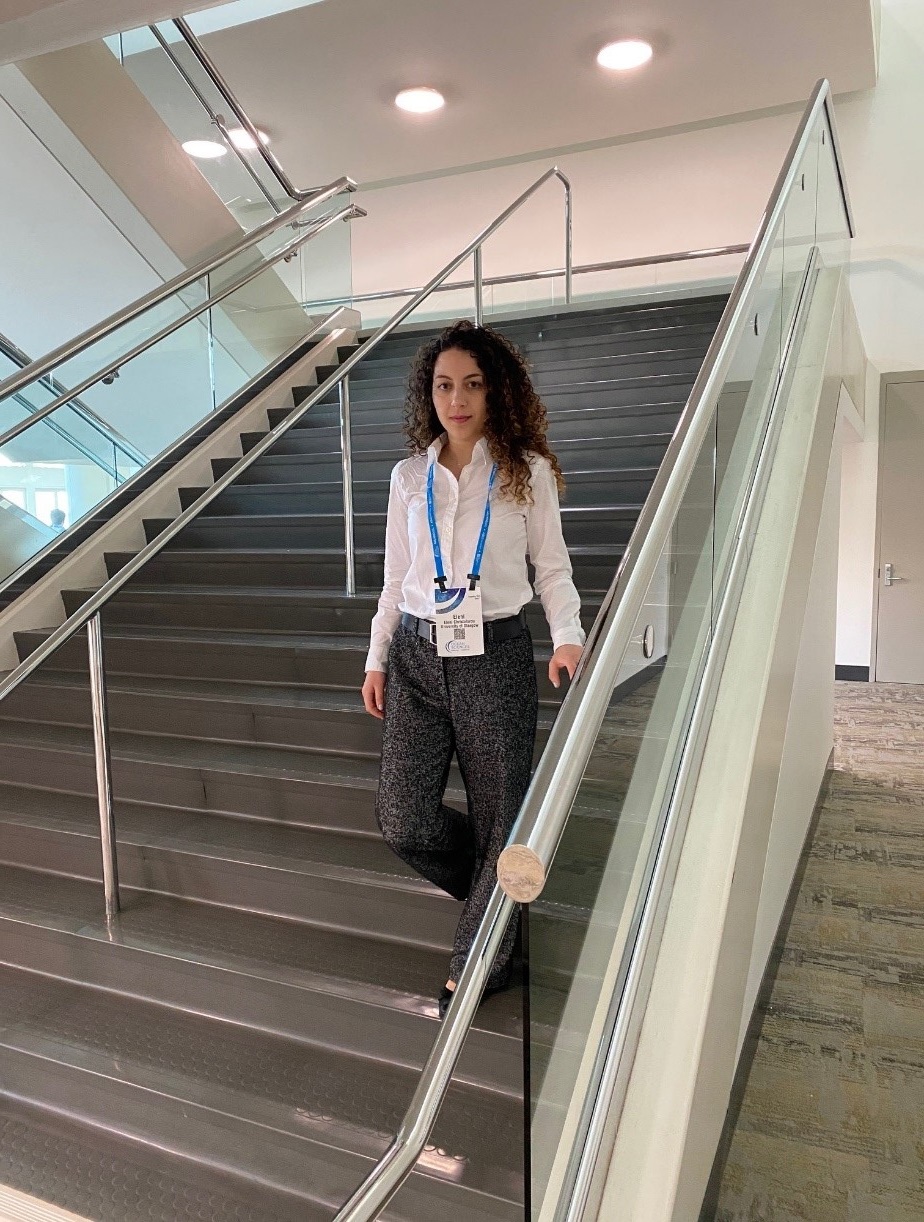Ecocity World Summit 2022 (online)
Eleni Christoforou
University of Glasgow

Attending conferences is a great way to gain experiences, both at a career and a personal level. At a conference you have the opportunity to hear what others in your field are investigating, share your own work and get feedback, gain networking experience, and create connections that could lead to future collaborations, enjoy some of the great snack selections and get the opportunity to travel to new cities around the world. There has been however a change in the way the latest conferences are performed due to the global Covid-19 pandemic where all the aforementioned benefits are true except the last two. This is because many conferences are now held online, where one can get the latest updates, still meet people but in a virtual manner and all these from the comfort of your own home.
This was the case with the Ecocity World Summit 2022 which was originally scheduled to be in Rotterdam, Netherlands in 2021 but got postponed and transomed to a fully online conference. I cannot hide my disappointment for not being able to attend Rotterdam however, the conference organisation team did an amazing job at creating a realistic virtual atmosphere for the attendees. An example of this can be seen in Picture 1 where ‘people’ are interacting at the lobby where the attendees can choose the sessions they would like to attend. A great benefit of virtual conferences over in-person attendance is the fact that the oral presentations and posters are still available to view up to 3 months after the event which means that attendees can attend all sessions of interest despite any time conflicts which has been a limitation in the past.
Regarding the Ecocity Conference 2022 I have only good words to say. It was very well organised with many different subjects and ideas, but all focused on the common theme: Ways to make our cities more environmentally friendly. A specific research topic that drew my attention was the creation of a 3D printed sculpture that would contain plant seeds where a little ecosystem would be created in the middle of a crowded and concrete based city. That was a great idea in looking into way that would make a city greener through an art installation and I believe modern cities around the worlds are in need for creative and sustainable ideas incorporating nature into our busy lifestyles.
Awardee profile:
I grew up on the island of Cyprus where I attended The English School. While still a student I earned my PADI Scuba diving and Coastal Skipper certifications and conducted voluntary work at AP Marine, a local consultancy agency where I participated in a project investigating the effect of a local hatchery, at MEDITS, a Mediterranean survey on the coastal marine biodiversity of the island and assisted in the mapping of a local reef that was going to open to recreational divers. I then attended the University of California, Santa Cruz in the USA where I pursued a double major in Marine Biology (BS) and Art (BA). During my undergraduate degree, I performed experiments both in Corsica, France and in California studying the suitability of the shells of hermit crabs in relation to their body size, tracked sea otters at the Elkhorn Slough in Monterey Bay as part of a six-month internship, and worked as a laboratory assistant and aquarist at Steels’ Invertebrate Laboratory at the Long Marine Labs. I have now finished my PhD in Marine Biology at the University of Glasgow, UK focusing on the effects of microplastics and light pollution on the ecosystem services provided by mussels. Currently, I am working as a postdoc at the University of Glasgow aiming at investigating the organisms that biofoul kelp in seaweed farms. In terms of my art, it was always influenced by my marine biology experiences thus most of my work is focused on science illustration and public communication (elenichri.com).
Latest News
Royal Society Publishing Photography Competition 2025
Please see a message from the Royal Society below:
We are delighted to announce that the 2025 Competition is now open for entries until 15 August for a chance to win £1000! The competition celebrates the power of photography in conveying the wonder of science happening all around us and photographs can be submitted in the categories of: Astronomy, Behaviour, Earth Science and Climatology, Ecology and Environmental Science, and Microimaging.
The competition is free to enter and open to anyone studying or working in science at graduate level or above. Category winners will receive a one-year membership to the Royal Photographic Society and the overall winner will receive a grand prize of £1,000. Find out more: https://bit.ly/RSPphotocomp
October 2025 MEDIN Workshop: Marine Data Management, Governance and the MEDIN toolset
The Marine Environmental Data and Information Network (MEDIN) are pleased to announce that registration is now open for the next occurrence of our popular free online training workshop: ‘Marine Data Management, Governance and the MEDIN toolset’ on the 13th – 17th October 2025 on OceanTeacher Global Academy.
Marine Data Management, Governance and the MEDIN toolset
The Marine Environmental Data and Information Network (MEDIN) and OceanWise are delighted to invite you to attend our popular free online training workshop: ‘Marine Data Management, Governance and the MEDIN toolset’ on the 19th – 23rd of May 2025.
